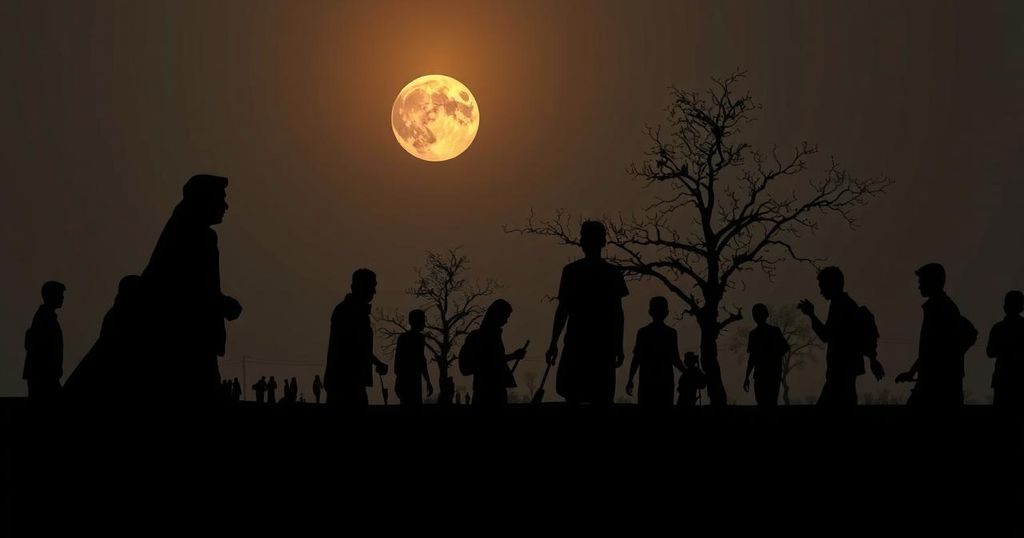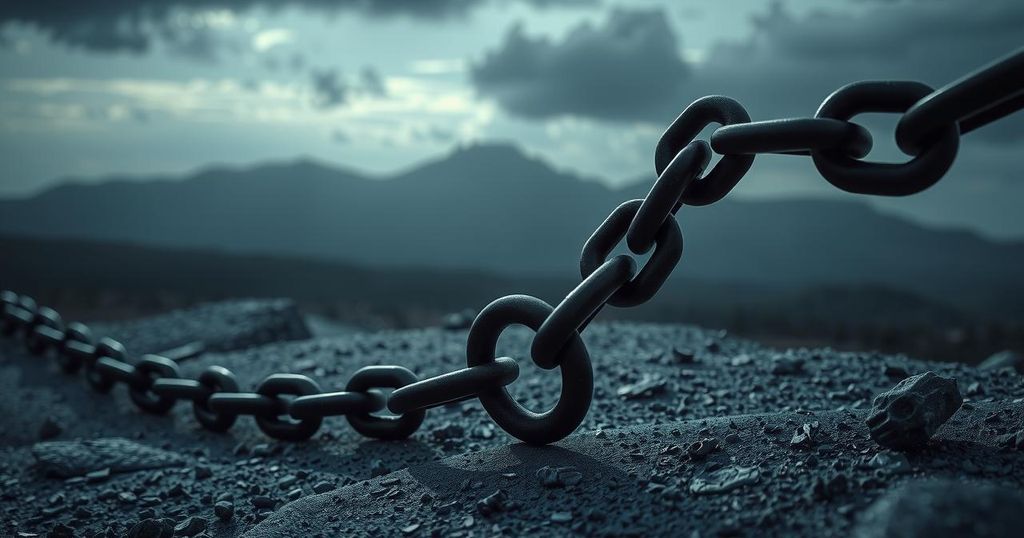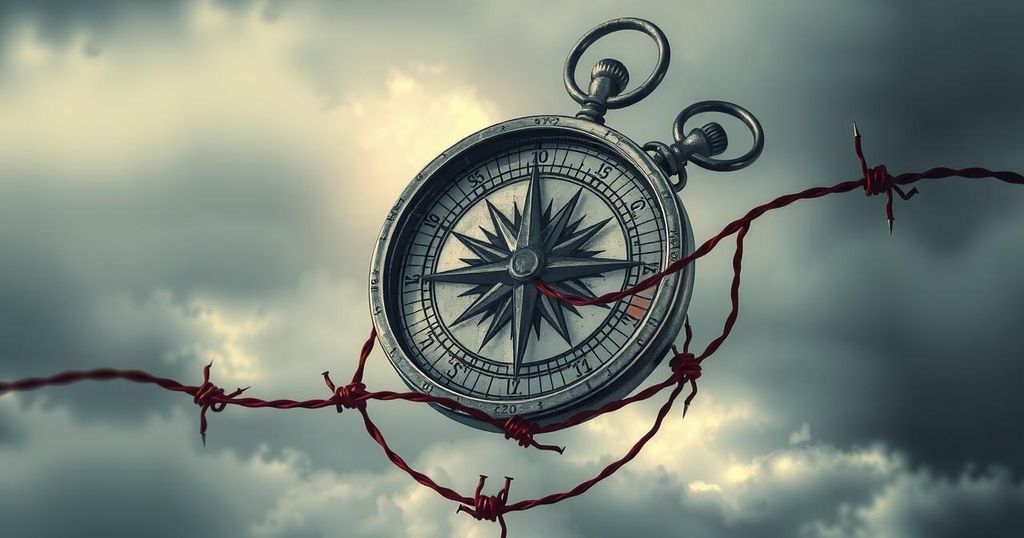The Rohingya Crisis: Captured by Conflict and Struggling for Survival
Summary
Abdul Kayes, a Rohingya refugee, shares his traumatic experience of forced conscription by the Arakan Army amidst escalating violence in Myanmar. The ongoing civil unrest has led to widespread suffering among Rohingya, including increased casualties and a humanitarian crisis in refugee camps in Bangladesh. Eyewitness accounts describe brutal conditions as civilians attempt to escape violence, highlighting the urgent need for international intervention and aid.
In the refugee camps of Cox’s Bazar, Bangladesh, Abdul Kayes* recounted a harrowing experience after being forcibly drafted into the Arakan Army (AA), a Buddhist militant group involved in conflict against the Myanmar military. Mr. Kayes, along with nine other Rohingya Muslim men, was abducted by armed AA members while preparing for morning prayers. He described his ordeal of being whisked away to a training camp where he was coerced into assembling firearms and indoctrinated with war rhetoric. “They told us we had to live united, die united,” he relayed to the ABC, illustrating the grim reality for the Rohingya amidst the civil strife in Myanmar. Since the military coup in February 2021, Myanmar has descended into chaos, marked by armed resistance from various factions, including long-established ethnic rebel groups. The AA has reportedly begun drafting Rohingya into its ranks amid widespread conscription efforts by the military, which faces significant losses. The AA’s growing territorial gains have positioned it against the Myanmar military, which continues to target Rohingya individuals who have been caught in the crossfire of this protracted conflict. After a month of brutal training characterized by physical and psychological torment, Mr. Kayes found an opportunity to escape by persuading his captors to let him fetch water. However, others have not been as fortunate. Reports indicate that more than 100 Rohingya were killed during recent violent clashes along the border as they attempted to flee to safety. Eyewitness testimonies described a scene of terror and tragedy, with gunfire inundating the area as civilians sought refuge. In the ongoing humanitarian crisis, Rohingya survivors, such as Almaas Khatun and her daughter, continue to face unimaginable hardships. Ms. Khatun’s journey to safety was marred by loss and desperation as her daughter sustained severe injuries from gunfire. “They shot gunfire like they were raindrops,” she recounted, emphasizing the life-threatening conditions prevalent in the region. Despite receiving medical care after significant struggles, the family now lives in a refugee camp, enduring emotional and financial hardships. As conditions in the Cox’s Bazar camps worsen with overstretching resources and a rapidly growing population of refugees, humanitarian assistance remains critical. The situation is further exacerbated by a surge in violence in Myanmar, prompting calls for increased support and protection for Rohingya refugees. The international community and humanitarian organizations continue urging the necessity for new resettlement options and better policies to assist the vulnerable populace who have suffered immensely due to the conflict.
The Rohingya are a Muslim ethnic minority in Myanmar who have faced systemic persecution and violence for decades. Following the military crackdown in 2017 that led to mass displacement, many fled to Bangladesh, leading to a refugee crisis. In recent years, the situation has escalated due to a military coup in Myanmar and subsequent civil unrest, resulting in increased fighting and a humanitarian crisis that affects not only the Rohingya but other ethnic groups as well. The Arakan Army, a rebel group with its own agenda, has sought to assert control and, as part of this conflict, has begun forcibly conscripting Rohingya individuals into its ranks, reflective of a complicated and dire situation.
The plight of the Rohingya refugees in Cox’s Bazar highlights a complex humanitarian crisis characterized by violence, forced conscription, and severe living conditions. With ongoing conflict in Myanmar and continuous reports of human rights violations, the future for these individuals remains precarious. The international community is urged to take action to alleviate their suffering and provide pathways for resettlement. The testimonies of those affected underscore the urgent need for increased support and protection for this vulnerable population.
Original Source: www.abc.net.au








Post Comment